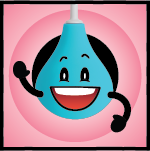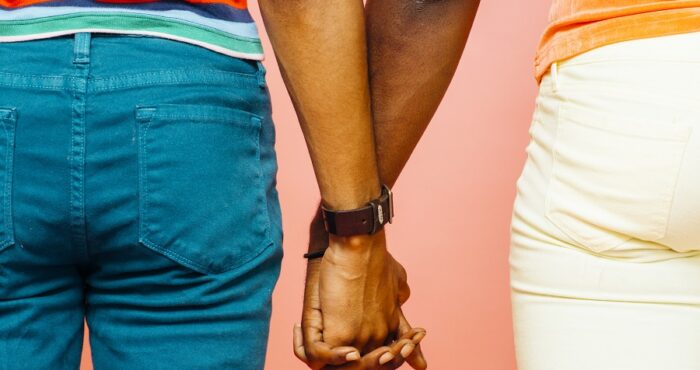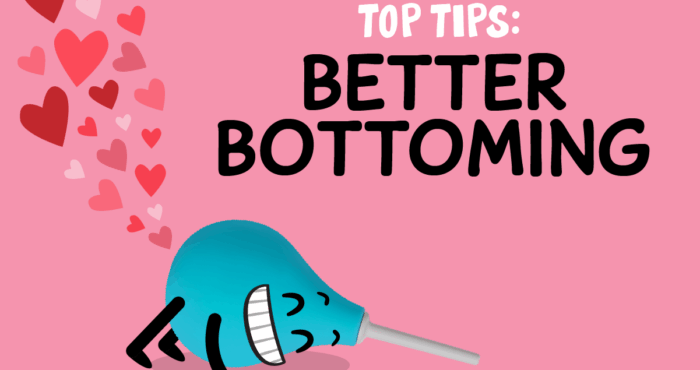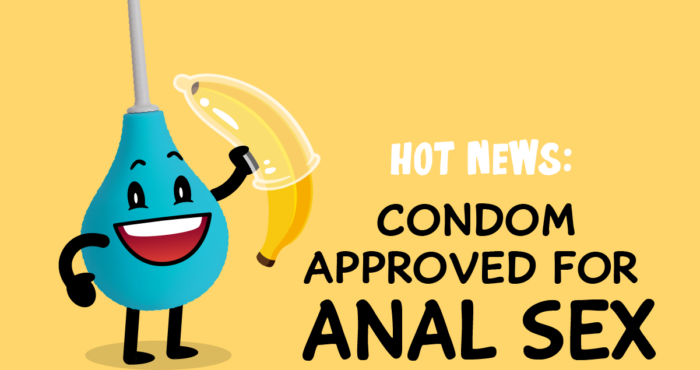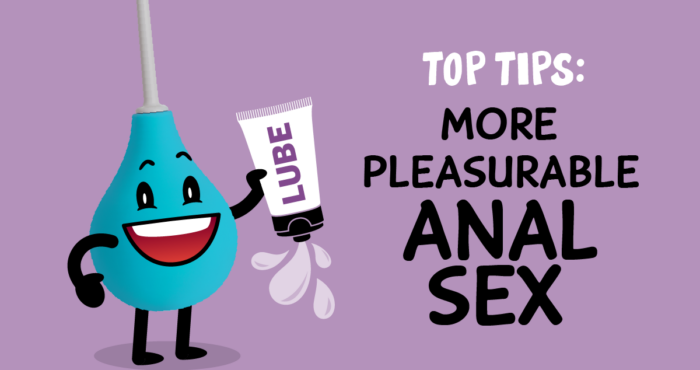Anal fissures are treatable
Don’t suffer in silence if you’re experiencing sharp, stabbing pain when you bottom or when you poop. Painful paper-cut-like tears in your anal canal happen—they’re called anal fissures—and they’re treatable. Treating anal fissures is important because there’s a higher risk of HIV infection if you’re exposed to HIV during anal sex.
“Anal fissures aren’t something that we talk about much in the gay community,” said Pierre-Cédric Crouch, NP, the nursing director of the sexual health clinic Magnet at San Francisco AIDS Foundation. “People will bottom, their skin will tear a little, and it will hurt. And they will just think it is a consequence of having sex. People should know that anal fissures can be treated and that there are things you can do to help heal them.”
What is an anal fissure?
An anal fissure is a tiny tear in the anal canal.
They can bleed—a lot. The pain, potential embarrassment, and experience of seeing blood coming from the butt can be emotionally traumatic for many people, causing them to suffer in silence instead of seeking treatment.
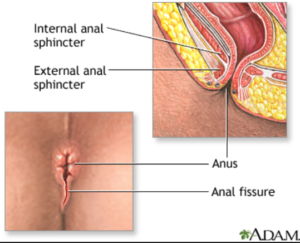
The opening of your anus (your butt) isn’t perfectly round, said Crouch. It’s shaped like an oval—and towards the bottom of the oval, the skin is pinched. Anal fissures tend to happen in that pinched area. Because the skin is pinched off, there isn’t much blood flow to the area. If you get a tear, the lack of blood flow can prevent it from healing.
“Some people—if they get a tear—will heal up on their own and will be fine. For others, the fissure doesn’t heal properly on its own. Every time they bottom, the fissure will break open again, and the fissure remains chronically open. This can be quite painful.”
What are anal fissures caused by?
Anal fissures are caused by trauma to the anal canal. Trauma can result from being constipated (straining while you’re trying to poop) or from bottoming/having anal sex. People can get fissures if they get pounded hard during sex or have a really large bowel movement.
What is the treatment for an anal fissure?
Small fissures can heal up on their own without any treatment. If you have a very large fissure, it can require a visit to a proctologist to do surgery. The small to medium ones are treated with a cream that dilates the blood vessels and stimulates blood flow to the fissure. This promotes healing.
Nurse practitioners at Magnet, the sexual health clinic run by San Francisco AIDS Foundation, prescribe a medication called nifedipine that’s mixed into a paste with lidocaine. People are instructed to put a little dollop of the paste on their butt three times a day, for up to six weeks, but most fissures heal after two or three weeks. Lidocaine is a numbing agent so the cream desensitizes the area while also helping it heal.
Is the treatment expensive?
The medication costs about $40. People who are treated at Magnet who don’t have insurance are provided with treatment for free by San Francisco AIDS Foundation.
How do I get treated?
Talk to your health care provider! People shouldn’t suffer in silence, said Crouch. If you’re experiencing pain from anal sex, get it checked out by a queer-friendly health care provider.
If you’re in the San Francisco Bay Area, access treatment for anal fissures at the sexual health clinic Magnet, at Strut (470 Castro Street in San Francisco), a program of San Francisco AIDS Foundation.






